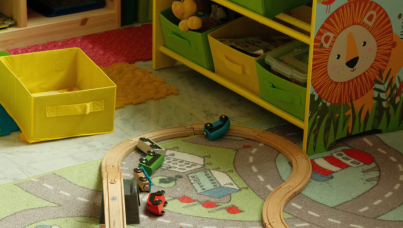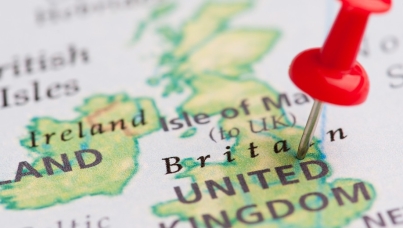Fake news, filter bubbles and post-truth are other people’s problems…
- 65% of people across 27 countries think other people live in their own internet bubble – BUT only 34% think they themselves do
- 63% of people think they can spot fake news – BUT only 41% think average person can
- 60% think other people don’t care about facts anymore, they just believe what they want
- 60% also say they themselves see deliberately fake reports in the media at least fairly regularly
- And 48% say they themselves have believed a story they’ve then found out is fake
- 36% now think of ‘fake news’ as an attack term used to discredit stories that politicians or the media don’t agree with
- 64% think people trust politicians to tell the truth less than they did 30 years ago
A major new Ipsos study of over 19,000 people in 27 countries, and part of our long-running series on misperceptions of key social realities – The Perils of Perception – highlights how we think fake news, filter bubbles and post-truth are things that affect other people, much more than ourselves.
But the majority also say they regularly see fake news, and nearly half say they’ve believed a fake story before finding out it’s fake.
It’s not surprising then that we also think trust in politicians and the media has declined and that lying in the media is increasing. On a more positive note though, we don’t see a wholesale decline in knowledge of political and social issues among our populations - we’re split on whether our understanding of realities is increasing or not.
Other people live in a filter bubble…
65% of people across 27 countries believe that the average person in the country lives in a bubble on the internet, only connecting with people like themselves and looking for opinions they already agree with.
This varies significantly between countries. The US has the highest level of agreement: 77% of Americans believe that others live in a bubble, 74% in India, 72% in Malaysia and 71% in Sweden. At other end of scale, only 44% agree with this in Japan.
BUT people think they themselves are much more open: only 34% think they only connect to people like themselves or look for opinions they already hold. Only 22% of Germans agree with this about themselves, as do 23% of Swedes and Argentinians.
Other people struggle to identify fake news
63% of people are confident they can identify ‘fake news’ (which was defined as entirely made up stories or facts) from real news. People in Turkey, Chile and Peru are particularly confident in their own abilities, but people in Japan (30%) and Spain (39%) are less sure.
But again people have much less faith in the average person in their country: only 41% think their average fellow countryperson can distinguish real and fake news. The Swedes (26%), Japanese (26%), Italians (27%), British (28%) and Americans (29%) have the least faith in their fellow citizens.
But other people don’t care about facts anyway
60% believe that the average person in their country doesn’t care about facts on politics or society anymore, they just believe what they want.
This rises to 71% in Peru, 70% in Serbia, 69% in Turkey and 68% in the US. More people agree than disagree with this in all 27 countries, but the Italians (48% agree), Japanese (49%) and Chinese (49%) have more faith in their citizens’ interest in facts.
It’s not surprising then that the majority have more confidence in their own understanding of social realities like immigration levels and crime rates than the average person. 59% think they have a better understanding, with only 29% saying they don’t.
Turkish (76%) and Indian (75%) respondents are particularly confident that they are better informed than their average citizen. This may reflect that this study is conducted online, among a more affluent, connected population than average in these countries – but there is misplaced confidence in many countries where this cannot be the explanation. For example, 58% of online people in Britain think they have a better view of reality than the average person, and only 27% think they don’t.
‘Fake news’ is regularly seen by the majority and has been believed by nearly half
60% of people across the countries as a whole say they see stories where news organisations have deliberately said something that isn’t true very or fairly regularly.
But there is a huge variation in this between countries. 82% in Argentina say they see deliberately fake stories at least fairly regularly, but only 30% in Germany, 36% in Japan and 39% in South Korea say the same.
48% of people across the 27 countries say they’ve been taken in by fake news in the past – that they’ve believed a news story was real until they later found out it was fake. Brazilians are particularly likely to agree with this, with 62% saying they’ve believed a fake story at some point.
‘Fake news’ is losing its meaning: a third think it’s used as an attack term for stories politicians don’t like
The term ‘fake news’ is used in a number of different ways. The most common understanding is ‘stories where the facts are wrong’, which 56% pick out as their understanding of the term. But 44% also see fake news as stories where news outlets or politicians only pick facts that support their side of the argument.
And 36% now see fake news as a term politicians and the media use to discredit news they don’t agree with. The percentages picking this definition out varies considerably between countries, with a majority (51%) in the US defining fake news this way, down to only 11% in Italy.
People think we’re wrong about social realities because the media, social media and politicians mislead us – but many also recognise we have our own biases
As we know from our misperceptions studies, people get a lot wrong about key realities like what percentage of their population are immigrants, or whether crime is going up or down. When asked why people get these things wrong, the main answers were that politicians mislead people (52%) or the media (49%) or social media misleads people (41%).
But many also see that people have a biased view of the world: 43% think we’re wrong because of our tendency to focus on negative news, to think things are getting worse or to generalise from our own experience.
But there are variations across countries. People in South Africa (68%) and the US (64%) are particularly likely to blame our misperceptions on politicians misleading us.
People in Serbia (68%), Turkey (61%) and Britain (60%) are particularly likely to blame the media for misleading us.
People in Malaysia (59%), the US (58%) and Britain (56%) blame social media.
But people in the US (57%), South Africa (56%) and Sweden (56%) are also most likely to see our own biases as leading people astray.
We think trust is in politicians is declining, and lying is increasing – but we’re split on whether our political knowledge is getting worse
Given the results from the survey, it’s no surprise that 64% think people in their country trust politicians to tell the truth less than they did 30 years ago. This includes a majority in every country in the study and reaches highs of 80% in Sweden and 77% in South Africa.
Of course, this perception of lower trust in politicians now than in the past may not be true. In Britain we have been tracking trust in politicians to tell the truth since 1983, and it has barely moved over that time: in 2017 only 17% trusted politicians to tell the truth, but that is virtually identical to the very low level of trust in 1983, which was 18%.
And 57% think there is more lying in politics and the media than there was 30 years ago, up to 71% in South Africa, 69% in the US and 68% in Sweden. This is not the view of everyone, with 11% thinking there is less lying, up to 22% in India.
And despite all the challenges of fake news, filter bubbles and post-truth, we are more likely to think that the average person knows more about politics and society (39%) rather than less (30%) compared with 30 years ago. South Koreans (66%), Malaysians (61%) and Indians (56%) are particularly positive about how knowledge has changed. Swedes and Germans are most negative: 47% of Swedes and 42% of Germans think knowledge has decreased.
Bobby Duffy, Chair of the International Social Research Institute, said:
The challenges to our reality-based view of the world are real and pressing, as some of the findings from our study show, with the majority of people saying they’ve seen fake news, and half saying they’ve believed it at least for a while.
And this is made more dangerous because we have an in-built tendency to think that we’re better at spotting lies and understanding reality than other people. This pushes us to think that fake news, filter bubbles and post-truth are other people’s problems, not ours. But the results of the survey show that these are a real concern for many people, and much more so in particular countries.
But we also have a tendency to think things are worse now than in the past – and this is reflected in our view of decreasing trust in politicians and perceived increases in political and media lying. But the reality, in Britain at least, is there was no recent golden age of trust in politics, and this more reflects our rosy retrospection about the past.
There is, however, some hope from the survey. Many have spotted that fake news is being used as a term to attack real facts. And more importantly, we recognise that it’s not all downhill on political knowledge, with more thinking the public’s knowledge is increasing than decreasing in most countries.
Technical note
- 19,243 interviews were conducted online across 27 countries between June 22 – July 6 2018 among adults aged 18-64 in the US and Canada, and adults aged 16-64 in all other countries.
- Where results do not sum to 100, this may be due to computer rounding, multiple responses or the exclusion of don't knows or not stated responses.
- Data are weighted to match the profile of the population.
- The Perils of Perception – Why We’re Wrong About Nearly Everything is published by Atlantic Books on 6th September 2018 – for more info see perils.ipsos.com



